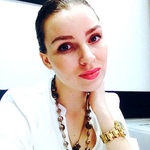Cases of Russian Nouns
Cases of Russian nouns
First of all let’s say that Russian nouns are divided into: animate and inanimate nouns; grammatical gender (masculine, feminine, and neuter); numbers (singular and plural); six cases (nominative, genitive, dative, accusative, instrumental and prepositional).
The nouns change their forms and they can add or change their endings in Russian language. All these different forms of nouns are called cases. The cases of nouns show their grammatical function in a sentence. Every case is different. They are used in specific different situations.
In this article we will see how to understand and memorize so complicated Russian cases of nouns. For the easier comprehension of all Russian grammar rules I use special spreadsheets.
There you can find short grammar rules, the methods of using the rules and the examples. This method is amazing for fast memorization of difficult Russian rules, especially Russian cases.
In the spreadsheet of all cases of Russian nouns we will see three columns. The first column will show us the names of Russian cases, the second one will contain of their main uses and the third one will show the examples.
Unfortunately, I cannot present you my originals spreadsheets in this format of article. All the spreadsheets of Russian grammar rules you will find and receive on my private lessons.
But now here I can only present my grammar spreadsheets this way.
--
Nominative (Имени́тельный паде́ж)
|Questions| Examples |
| :---------- | :---------- |
| кто? (who?) | человек (кто?) – human (who?) |
| что? (what?) | книга (что?) – book (what?) |
undefined
Genitive (Роди́тельный паде́ж)
|Questions| Examples |
| :---------- | :---------- |
| кого? (of whom?) | Эта книга Анны.(кого? чья?) - This is Ann’s book.(of whom?) |
| чего? (of what?) | Понедельник - это день недели. (чего?) - Monday is a day of the week. (of what?) |
undefined
Dative (Да́тельный паде́ж)
|Questions| Examples |
| :---------- | :---------- |
| кому? (to whom?); | Я даю книгу девочке. (кому?) - I give the book to the girl. (to whom?)|
| чему? (for what?) | Дети радуются снегу. (чему?) - The children enjoy the snow. (for what?) |
undefined
Accusative (Вини́тельный паде́ж)
|Questions| Examples |
| :---------- | :---------- |
| кого? (whom?) | Я люблю маму. (кого?) – I love my mother.(whom?) |
| что? (what?) | Девочка читает книгу. (что?) – A girl is reading a book. (what?) |
undefined
Instrumental (Твори́тельный паде́ж)
|Questions| Examples |
| :---------- | :---------- |
| кем? (by whom? or as who?) | Она работает врачом. (кем?) - She works as a doctor.(as who?) |
| чем? (with something... or by...) | Он ест свой салат вилкой.(чем?) - He is eating his salad with a fork. (with...) |
undefined
Prepositional (Предло́жный паде́ж)
|Questions| Examples |
| :---------- | :---------- |
| о ком? (about whom?) | Я говорю о маме. (о ком?) – I am talking about mother. (about whom?) |
| о чем? (about what?) | Он мечтает о доме. (о чем?) – He dreams about house. (about what?) |
| на чем? (by what?) | Мы едем на машине.(на чем?)- We are going by the car. (by what?) |
| где? (where?) | Они находятся в пути. (где?) – They are in the way. (where?) |
undefined
Thank you for your attention!
See you on my lessons!
١٦ كانون الأول ديسمبر ٢٠١٦





